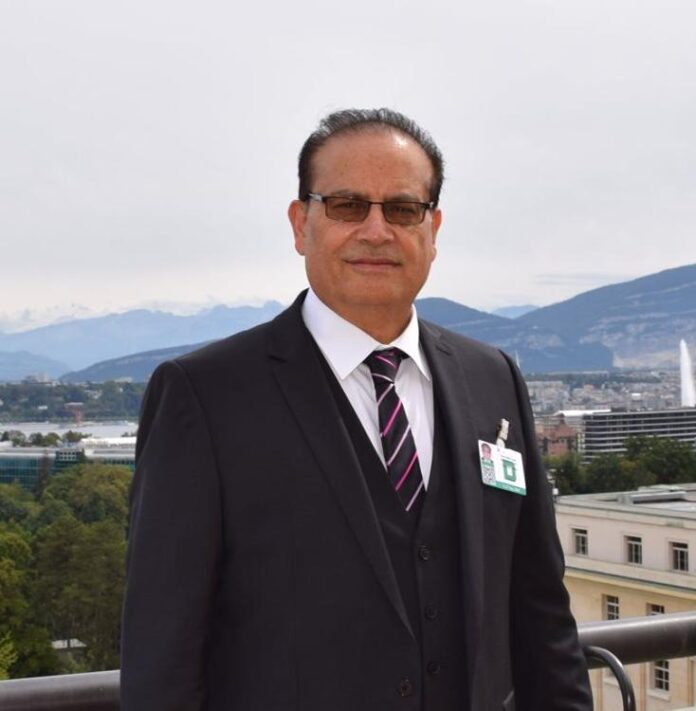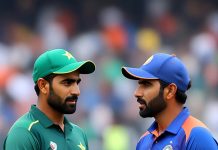By Qamar Bashir
Former Press Secretary to the President
Former Press Minister to the Embassy of Pakistan to France
Former MD, SRBC
The PTI chairman faced relentless trials and retribution, enduring a staggering number of approximately 200 cases and imprisonment since August 2023. Isolated from the world, denied adequate treatment befitting a former prime minister, and continuously shifted between prisons, his plight seemed unending. The party he painstakingly built crumbled like straw in a tempest, with close associates forcibly distanced from him. His philanthropic endeavors, including the Shaukat Khan Cancer Hospitals, which he passionately initiated and nurtured to deliver invaluable services, were turned against him. Allegations of corruption and misappropriation of donations struck at the core of his efforts, tarnishing his reputation. Even projects like the Al-Qadir Trust, established solely for noble purposes, teaching Islamic values and nurturing future leaders regardless of background, were used to intensify the scrutiny against him. Accusations, like the Cypher received from the Ministry of Foreign Affairs, were manipulated to threaten him, despite lacking lawful substance or contradicting national interests, serving as tools to suffocate his standing.
The chain of trials and retribution for the PTI chairman began long ago with the heart-wrenching separation from his beloved wife, the daughter of one of the wealthiest individuals globally. Their parting wasn’t due to a loss of affection but stemmed from the relentless pursuit by fanatics targeting Jemima. Before their marriage, Jemima, who converted to Islam and took the name Haiqa, faced persecution due to her Jewish background. Despite her unwavering support for her husband, the looming threat to her life led her to urge Imran Khan to migrate to England, offering a life of luxury unbound by financial worries, given her substantial wealth amounting to 22 million pounds. At one point, she was recognized as the 20th richest young woman globally in 2002.
Resolute and steadfast in his convictions, he declined the offer to migrate, driven by his profound love for the country and an unwavering aspiration to lift his fellow citizens from dire poverty. His refusal stemmed from a deep-seated desire to grant the unfortunate people of this country a life of dignity, honor, and prosperity. His vision was to mold Pakistan into a modern-day embodiment of the Riasat Madina, inspired by the principles established centuries ago by our revered Prophet (Peace be Upon Him). This envisioned state would be founded on principles of unity, justice, and the rule of law, fostering a culture of meritocracy, fortified by robust moral and ethical values. It would embrace all humanity in progress and prosperity while nurturing a relentless pursuit of knowledge.
Similar to his first wife, it now was the turn of his third wife to face a similar fate. Initially lauded as the epitome of piety by her former husband extolling Imran Khan as a gentleman, the same narrative took a drastic turn. In orchestrated interviews, her ex-husband resorted to hurling accusations against her and Imran Khan across all media channels, shattering norms of decency and ethical values. She stands accused of various allegations, including embezzlement from Toosha Khana, accepting bribes on behalf of Imran Khan, and implication in the Al-Qadir Trust case as a trustee. Facing relentless interrogation by entities like the NAB, Special Courts, or regular courts, it appears to be an unending punishment simply for being the wife of the PTI Chairman.
Even in the world of politics, it’s not right to drag a politician’s family into accusations. It’s like barging into someone’s private life, which isn’t fair or respectful. Instead of talking about important matters like policies and how to run the country, bringing in personal matters just distracts everyone. It’s not fair to blame a politician’s family for their actions either. Doing that doesn’t help real political talks; it just makes things messy. Politics should be about ideas and actions, not gossip or personal matters, to keep things fair and respectful. That’s how we should keep political discussions honest and worthwhile but these noble principles are long forgotten by us as a nation.
The PTI Chairman had a choice, like many other politicians, to flee to a foreign country when faced with trials and retribution. However, he chose differently. He stayed firm, expressing that this country is his home, where all his assets, past, present, and future are tied. He vowed not to flee, no matter how tough things got. Consequently, he has been in jail since August 5, 2023, after being arrested at his Lahore residence, sentenced to three years’ imprisonment. Despite the Islamabad High Court’s order for him to serve his term in Rawalpindi, he was taken first to the notorious Attock Jail and later transferred to Adiala Jail in Rawalpindi, where he has remained since then.
Remarkably, eyewitnesses describe him as an embodiment of composure, exhibiting an unparalleled sense of calmness even in the most challenging jail conditions. Notably, he refrained from voicing any grievances about the harsh treatment he endured behind bars. He remained silent when denied the basic right to speak with his sons in London, and even in the face of the strict prohibition on visits from close relatives, friends, and family members, he chose not to protest. His resilience and quiet strength under such circumstances are nothing short of extraordinary.
The burning question plaguing millions, including myself, is the why behind his renunciation of a life of luxury. Why would he relinquish a wife considered one of the wealthiest globally? Why sever ties with his beloved sons, denying himself the joy of witnessing their growth as a caring father? Why dedicate himself to philanthropy, benefitting countless destitute souls? What motivated the establishment of Numl University in an impoverished region? Why delve into founding the Al-Qadir Trust, focusing on the life of the Prophet (Peace Be Upon Him)? Above all, why forsake comfort, family, and freedom to step into the perilous, murky, and vicious realm of Pakistani politics, sacrificing everything he held dear? The depth of these choices and the driving force behind his sacrifices is a profound enigma.
In the religious perspective, his steadfastness stems from the belief that he’s enduring a trial and retribution sanctioned by the Almighty. His conviction lies in the faith that once this trial concludes, he’ll emerge vindicated and triumphant. Anchored in Islamic examples, he may be drawing strength from revered personalities who, facing trials, never wavered in their belief in Allah despite enduring pain, indignity, insults, and banishment. He might have been inspired by their unwavering faith which ultimately led to their victory. Ethically, this viewpoint nurtures resilience, patience, and purpose in facing challenges, fostering fortitude, integrity, kindness, and compassion even amidst adversity. This dual perspective, religious and ethical, might have shaped his enduring commitment and resilience throughout his trials.
His past speeches on a number of occasions referred to inspiration drawn from historical and modern exemplars who faced adversity with unwavering courage. He frequently cites the example of Prophet Ayub (Peace Be Upon Him), enduring severe illness, loss of wealth, and family yet remaining resolute in faith, showcasing patience and trust in God’s mercy, eventually leading to restoration and healing.
Likewise, he had been referring to the example of Prophet Muhammad (Peace Be Upon Him) Who (PBUH) faced immense opposition, ridicule, and persecution during his mission. Enduring boycotts, loss of loved ones, and threats on his life, his unwavering faith and perseverance stand even today as a testament to patience and resilience amid trials.
He had been referring to modern day figures like Mother Teresa exemplifying unwavering dedication despite inner struggles, showcasing commitment to faith amid trials. Similarly, Nelson Mandela’s steadfast commitment to justice during imprisonment and the struggle against apartheid demonstrated resilience in the face of adversity, viewing challenges as opportunities to showcase faith, dedication, and resilience. These diverse examples may have served as a guiding light in his messages, inspiring steadfastness and resilience in confronting trials.
Certainly! The PTI Chairman’s composed demeanor in challenging times might also stem from worldly reasons beyond religious beliefs. His resilience and calmness could be attributed to a blend of emotional intelligence and learned strategies for handling adversity. Such individuals often possess a deep understanding of their emotions, allowing them to effectively manage their feelings and prioritize problem-solving over emotional reactions. Drawing from past experiences, they cultivate resilience, learning from hardships and building confidence in their ability to navigate tough situations, which acts as a stabilizing force against panic and anxiety.
Moreover, having a robust support network and practicing intentional techniques like mindfulness or stress management exercises are pivotal. These deliberate practices train the mind to maintain composure, while a solid support system provides reassurance. Additionally, their focus on finding solutions rather than dwelling on problems significantly contributes to their ability to remain calm even amidst substantial adversity. This blend of emotional intelligence, learned resilience, deliberate practices, and a solution-focused mindset contributes to their remarkable composure in challenging situations.
The PTI Chairman has been a successful person throughout his life. Winning the only world cricket cup for Pakistan, received the Hilal-e-Imtiaz and President’s Pride of Performance award in 1982. He was named one of Time magazine’s 100 Most Influential People in the World 2019 and 16th most influential Muslim in their 2020 version. In the 2022 version he is in the top ten, at number 10. His tenure as Pakistan’s Prime Minister for three and a half years capped a career defined by excellence both in sports and humanitarian endeavors.
The life of the PTI Chairman is a tapestry woven with threads of resilience, sacrifice, and unwavering dedication. His journey, marked by triumphs in sports, recognition in humanitarian endeavors, and navigating the tumultuous corridors of politics, mirrors a spirit that remains unbroken in the face of adversity. His steadfast commitment to principles, whether grounded in religious beliefs or ethical values, echoes the courage of historical figures who endured trials with unwavering resolve. Amidst challenges, he draws strength from both faith and worldly wisdom, embodying a rare fusion of emotional intelligence and learned resilience. The choice ahead is stark: to dismantle a man of immense caliber, character, and strength in adversity or to preserve and harness his remarkable capability and resolve for the greater good.

















